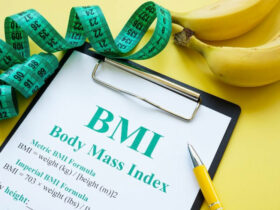Obesity and GERD (gastroesophageal reflux disease) are two prevalent health concerns that often go hand in hand. In this section, we will uncover the link between obesity and GERD, exploring the causes of both conditions and the impact obesity has on GERD symptoms and outcomes. Understanding this connection is key to effectively managing both obesity and GERD and improving overall health.
Key Takeaways:
- Obesity and GERD are closely linked, with obesity being a significant risk factor for developing GERD.
- The excess weight around the abdomen caused by obesity can contribute to the development of GERD symptoms.
- Obesity can worsen the severity and frequency of GERD symptoms.
- Managing obesity through lifestyle changes and weight loss can help alleviate GERD symptoms.
- Seeking appropriate treatment and adopting preventive strategies are crucial for effectively managing both obesity and GERD.
Exploring the Causes of GERD and Obesity
In this section, we will take an in-depth look at the factors that contribute to both GERD (gastroesophageal reflux disease) and obesity. Understanding the causes of these conditions is essential for developing effective prevention and management strategies.
Symptoms of GERD in individuals with obesity
Obesity is a complex condition that can significantly impact digestive health and increase the risk of developing GERD. Several obesity-related factors can contribute to the development of GERD symptoms, including:
- Increased abdominal pressure: Excess weight in the abdomen can exert pressure on the stomach and esophagus, leading to the backflow of stomach acid into the esophagus - a hallmark symptom of GERD.
- Delayed stomach emptying: Obesity can impair the normal emptying of the stomach, allowing food and stomach acid to stay in the stomach for longer periods, increasing the likelihood of reflux.
- Altered esophageal motility: Obesity can affect the contractions of the esophagus, making it less efficient in pushing food and acid down into the stomach.
These factors contribute to the development of obesity-related GERD symptoms, which can include:
- Heartburn: A burning sensation in the chest, often accompanied by a sour taste in the mouth.
- Regurgitation: The backflow of stomach contents into the mouth.
- Dysphagia: Difficulty swallowing due to irritation and inflammation of the esophagus.
- Hoarseness and sore throat: Irritation of the throat caused by acid reflux.
It is important to note that not all individuals with obesity will develop GERD, and the severity of symptoms can vary. However, the risk is significantly higher in those who are overweight or obese.
Interplay between GERD and obesity
The relationship between GERD and obesity is complex and bidirectional. While obesity can increase the risk and severity of GERD symptoms, the presence of GERD can also contribute to weight gain and difficulty in managing obesity.
"The vicious cycle of GERD and obesity creates a challenging situation for many individuals. Addressing both conditions holistically is crucial for improving overall health and quality of life." - Dr. Emily Johnson, Gastroenterologist
Research suggests that the presence of GERD can lead to poor sleep quality and disrupt eating patterns, which may contribute to weight gain and difficulty in maintaining a healthy weight. Additionally, certain medications used to treat GERD, such as proton pump inhibitors (PPIs), have been associated with weight gain.
On the other hand, excess weight can worsen GERD symptoms and increase the risk of complications such as esophageal inflammation, erosions, and the development of Barrett's esophagus - a precancerous condition.
Understanding the interplay between GERD and obesity is crucial for developing comprehensive treatment plans that address both conditions simultaneously.
Data on the prevalence of GERD and obesity
| Country | Obesity Prevalence | GERD Prevalence |
|---|---|---|
| United States | 42.4% (2017-2018) | 18.1% (2015-2018) |
| United Kingdom | 28.7% (2019) | 23% (2019) |
| Australia | 31.3% (2017-2018) | 11.6% (2014-2015) |
These statistics demonstrate the significant overlap between obesity and GERD, emphasizing the need for targeted interventions to address both conditions collectively.
Now that we have explored the causes and symptoms of GERD in individuals with obesity, let's dive deeper into the impact of obesity on GERD in Section 3.
Understanding the Impact of Obesity on GERD
Obesity not only affects our physical appearance but also has a significant impact on our overall health. One condition that is closely linked to obesity is gastroesophageal reflux disease (GERD). In this section, we will explore how obesity worsens GERD symptoms and increases the risk of developing complications associated with both conditions. Understanding this impact is crucial for individuals who are dealing with these health issues.
The Impact of Obesity on GERD Symptoms
Obesity can put additional pressure on the stomach and the lower esophageal sphincter (LES), a muscle that acts as a barrier between the stomach and the esophagus. This increased pressure can weaken the LES, causing it to relax more frequently, and allowing stomach acid to flow back into the esophagus. As a result, individuals who are obese are more likely to experience frequent and severe acid reflux, heartburn, and regurgitation.
"Obesity increases the severity and frequency of acid reflux episodes, leading to more discomfort and potential damage to the esophagus."
The Risks of Obesity and GERD Complications
The combination of obesity and GERD poses additional risks and complications. Long-term acid exposure due to untreated or poorly managed GERD can lead to the development of esophageal ulcers, bleeding, and even Barrett's esophagus, a condition where the lining of the esophagus becomes abnormal. Obesity further elevates the risk of these complications, making it crucial for individuals to address both conditions simultaneously.
Managing Obesity to Improve GERD Outcomes
Properly managing obesity is essential in improving GERD outcomes and reducing complications. By losing weight and maintaining a healthy BMI, individuals can alleviate the pressure on the stomach and the LES, reducing the frequency and severity of acid reflux episodes. This can help in alleviating GERD symptoms and minimizing the risk of developing further complications.
Adopting a balanced diet, engaging in regular physical activity, and following a doctor's recommended treatment plan are key steps in managing obesity and GERD effectively. Additionally, lifestyle changes such as avoiding large meals before bedtime, maintaining a healthy sleep routine, and limiting the consumption of trigger foods and beverages can further improve GERD outcomes in individuals with obesity.
The visual representation above highlights the impact of obesity on GERD. As obesity increases, the severity and frequency of acid reflux episodes also increase, contributing to more discomfort and potential damage to the esophagus.
Managing Obesity and GERD: Treatment and Lifestyle Changes
When it comes to managing obesity and GERD, a comprehensive approach is key. Along with medical interventions, incorporating lifestyle changes can greatly improve the outcomes for individuals dealing with these conditions. Below, we explore different treatment options and the importance of adopting healthy habits.
Treatment Options for Obesity and GERD
There are several treatment options available for managing obesity and GERD. These include:
- Lifestyle modifications: Making changes to your daily routine and habits can have a significant impact on both conditions. This may involve adopting a healthier diet, engaging in regular physical activity, and managing stress levels.
- Dietary changes: Certain foods and beverages can trigger GERD symptoms. Working with a healthcare professional or registered dietitian can help you identify and eliminate these triggers from your diet, while ensuring you're still receiving the necessary nutrients.
- Medications: In some cases, medication may be prescribed to help manage GERD symptoms or assist with weight loss. Common medications include proton pump inhibitors, H2 blockers, and weight loss medications.
- Surgical interventions: For individuals with severe obesity or GERD that doesn't respond to other treatments, surgical interventions may be considered. Procedures such as gastric bypass surgery and fundoplication can help facilitate weight loss and alleviate GERD symptoms.
The Importance of Lifestyle Changes
While medical interventions are important, lifestyle changes play a crucial role in managing obesity and GERD. By adopting healthy habits, you can improve your overall well-being and reduce the impact of these conditions. Some lifestyle changes that can be beneficial include:
- Engaging in regular physical activity, such as walking, jogging, or swimming.
- Avoiding trigger foods and beverages that worsen GERD symptoms, such as caffeine, spicy foods, and fatty foods.
- Practicing portion control and mindful eating to manage weight.
- Eating smaller, more frequent meals to minimize the risk of acid reflux.
- Managing stress levels through techniques like meditation, deep breathing exercises, or engaging in hobbies.
- Getting an adequate amount of sleep to promote overall health and well-being.
By combining treatment options with lifestyle changes, individuals can effectively manage obesity and GERD, leading to improved quality of life and better health outcomes.

Image: Illustration representing the treatment options for obesity and GERD.
Prevention Strategies for Obesity and GERD
Preventing obesity and GERD (gastroesophageal reflux disease) involves adopting healthy habits and making conscious lifestyle choices. By prioritizing preventive measures, individuals can reduce their risk of developing these conditions and improve overall health. Here are some strategies to consider:
1. Maintain a Healthy Weight
Obesity is a significant risk factor for GERD. By maintaining a healthy weight through regular exercise and a balanced diet, you can reduce the likelihood of developing both conditions.
2. Eat a Nutritious Diet
Make mindful food choices by prioritizing nutrient-dense foods like fruits, vegetables, whole grains, and lean proteins. Avoiding high-fat and processed foods can help prevent obesity and reduce symptoms of GERD.
3. Practice Portion Control
Avoid overeating by practicing portion control. Pay attention to hunger and fullness cues, and aim to eat balanced meals in moderate amounts.
4. Be Active
Incorporate regular physical activity into your routine. Engage in activities that you enjoy, such as walking, jogging, swimming, or cycling. Aim for at least 150 minutes of moderate-intensity exercise per week.
5. Manage Stress
Stress can contribute to overeating and poor dietary choices, as well as exacerbate GERD symptoms. Incorporate stress-management techniques into your daily routine, such as meditation, deep breathing exercises, or engaging in hobbies.
6. Avoid Trigger Foods
Identify foods that trigger GERD symptoms, such as acidic or spicy foods, caffeine, and alcohol. Limit your consumption of these foods to prevent discomfort and manage symptoms effectively.
Implementing preventive measures can significantly reduce the risk of obesity and GERD. By adopting a healthy lifestyle and making informed choices, individuals can protect their well-being and enjoy a higher quality of life.
| Prevention Strategies for Obesity and GERD | Description |
|---|---|
| Maintain a Healthy Weight | Regular exercise and a balanced diet can help prevent obesity and reduce the risk of developing GERD. |
| Eat a Nutritious Diet | Prioritize nutrient-dense foods and avoid high-fat and processed foods to promote overall health and manage GERD symptoms. |
| Practice Portion Control | Be mindful of portion sizes and eat balanced meals in moderate amounts to prevent overeating. |
| Be Active | Incorporate regular physical activity, such as walking or swimming, to maintain a healthy weight and improve overall well-being. |
| Manage Stress | Use stress-management techniques like meditation or deep breathing exercises to reduce stress levels and minimize GERD symptoms. |
| Avoid Trigger Foods | Identify and limit the consumption of foods that trigger GERD symptoms, such as acidic or spicy foods, caffeine, and alcohol. |
By implementing these prevention strategies, individuals can take proactive steps to protect against obesity and GERD. Remember, prevention is key to maintaining optimal health and well-being.

Conclusion
Understanding the link between obesity and GERD is crucial for effectively managing both conditions. Obesity can significantly impact GERD symptoms and increase the risk of complications. However, there is hope for individuals struggling with these conditions.
By addressing obesity through lifestyle changes, such as adopting a healthy diet and engaging in regular physical activity, individuals can not only manage their weight but also reduce the impact of GERD. Additionally, seeking appropriate medical treatment for GERD, such as medications or surgical interventions, can provide relief from symptoms and improve overall well-being.
Prevention strategies are also essential in reducing the risk of developing obesity and GERD. Simple measures like maintaining a healthy weight, avoiding trigger foods, and practicing good sleep hygiene can go a long way in preventing these conditions. Regular check-ups with healthcare professionals can help identify any early signs or risk factors, allowing for timely intervention and management.
By taking proactive steps to address obesity and GERD, individuals can improve their quality of life and reduce the negative impacts of these conditions. Prevention, early detection, and effective management are key in the fight against obesity and GERD, ensuring better health and well-being for all.














